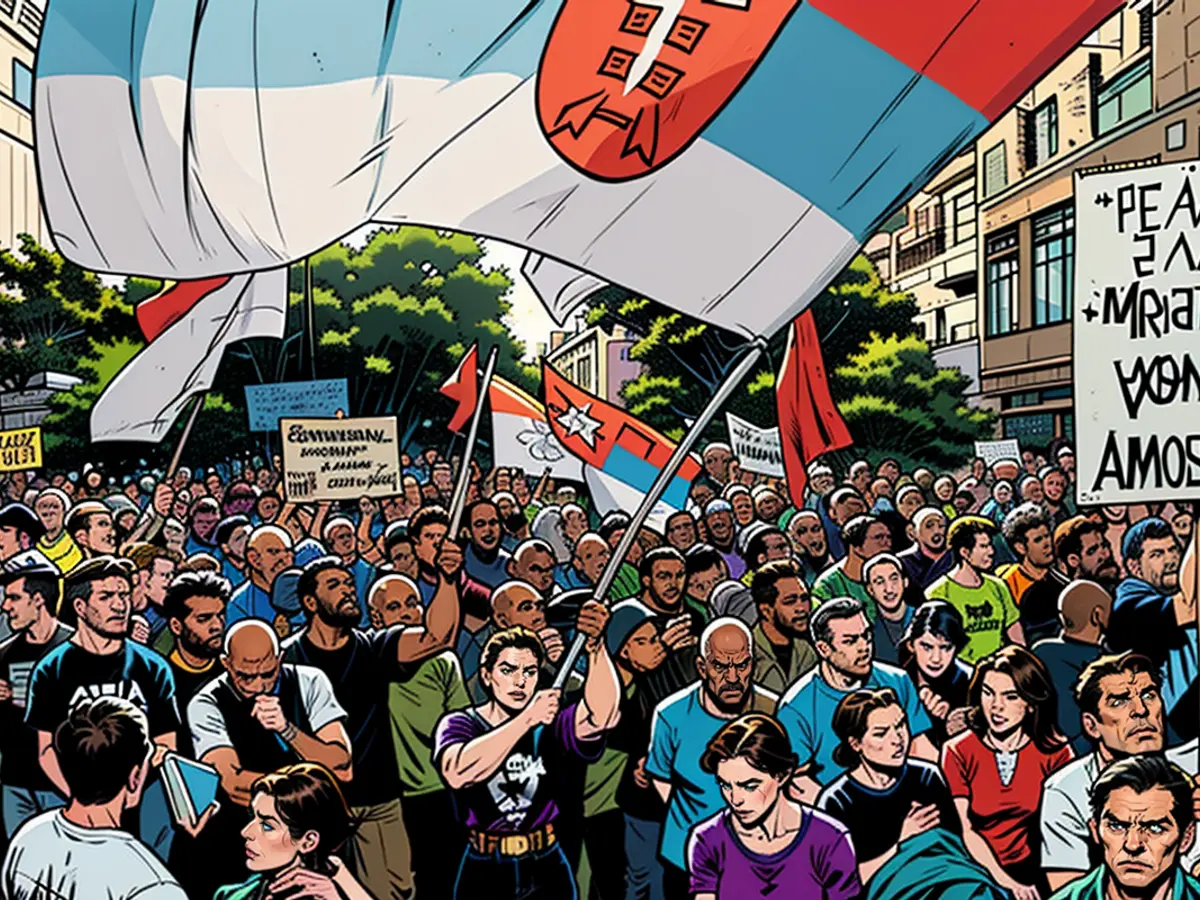Thousands protest against lithium mining in Serbia
The European Union would like to import large quantities of lithium from Serbia in the future. This could reduce dependence on China for this important resource. However, thousands are protesting against the deal on the streets.
Thousands of people across Serbia have protested against a recently agreed project with the EU for lithium mining. "They've taken our rivers and forests," said activist Nebojsa Kovandzic from the town of Kraljevo at a rally. "All they do is for their own interests, never in the interest of us, the citizens." The crowd chanted: "Thieves, thieves" or "Rio Tinto, go home."
In Sabac, protesters waved Serbian flags and marched through the city after a rally. Protests also took place in Arandjelovac, Ljig, and Barajevo. Serbs had already been protesting against the agreement on strategic resources for weeks, with which the EU wants to reduce its dependence on China. Lithium is crucial for battery production, especially for electric cars. A declaration of intent was signed last week in the presence of German Chancellor Olaf Scholz in Belgrade.
Environmentalists and opposition groups in Serbia criticize that the project will cause irreversible environmental damage, but will bring hardly any benefits to the country's citizens. The British-Australian company Rio Tinto had started a lithium mining project in the Jadar Valley in the west of the country a few years ago, which faced strong resistance and had to be suspended. However, the Serbian Constitutional Court lifted the government's decision to scrap the project worth 2.2 billion euros in early July, paving the way for its resumption.
Serbian President Aleksandar Vučić recently stated that mining would not begin before 2028. The government will demand environmental guarantees before approving the mining. Some government officials have hinted that a referendum on this issue could also be held.
The European Union's plan to import large amounts of lithium from Serbia has gained criticism from local Serbians, who view it as a threat to their environment and resources. Despite this, the Serbian President Aleksandar Vucičić has indicated that mining will not commence before 2028, and a potential referendum on the issue might be held.
In response to the European Union's proposed lithium import deal, Serbian protests against the EU's involvement in local resource extraction have continued, with recent demonstrations in cities such as Sabac, Arandjelovac, Ljig, and Barajevo.








